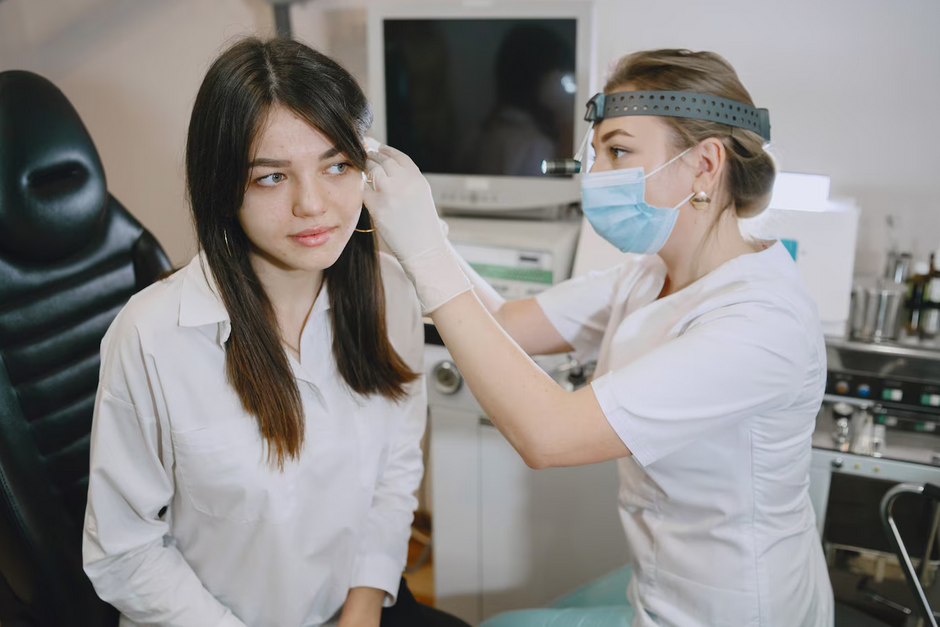If you suffer from tooth sensitivity, you know how uncomfortable—even painful—everyday activities like sipping hot coffee or enjoying a scoop of ice cream can be. When you’re also concerned about the appearance of your teeth, it’s natural to wonder: Are porcelain veneers a good option for people with sensitive teeth?
The answer is often yes—but with a few important caveats.
In this article, we’ll explain how porcelain veneers interact with sensitive teeth, who makes a good candidate, and how to ensure the procedure is both safe and comfortable for you.
🦷 What Causes Tooth Sensitivity?
To understand whether veneers are right for you, it helps to understand why your teeth are sensitive in the first place. Common causes of sensitivity include:
- Worn or thin enamel
- Gum recession exposing the tooth roots
- Tooth erosion from acid (diet or GERD)
- Cracks or chips in the enamel
- Tooth decay or exposed dentin
- Aggressive brushing or grinding (bruxism)
The discomfort happens when external stimuli like heat, cold, or pressure reach the inner nerves of the tooth.
✅ Are Porcelain Veneers a Good Option for Sensitive Teeth?
In many cases, yes—porcelain veneers can be an excellent option for patients with sensitive teeth. Veneers not only enhance the appearance of your smile but can also shield sensitive teeth from external triggers.
Here’s how veneers can help:
- They act as a barrier: Veneers cover the exposed or thin enamel, reducing sensitivity to temperature and pressure.
- They seal off small cracks or chips: These minor flaws can cause pain and are effectively hidden and protected by veneers.
- They improve function and strength: Veneers can help fortify weak enamel, reducing sensitivity caused by wear.
However, not all sensitivity can be solved by veneers. If the sensitivity is due to active tooth decay, gum disease, or nerve damage, those issues must be treated before veneers can be placed.
👩⚕️ Who Is a Good Candidate?
You may be a candidate for porcelain veneers if you:
- Have moderate sensitivity caused by worn enamel or surface-level issues
- Do not have extensive decay, infections, or gum disease
- Are looking to fix aesthetic concerns like discoloration, gaps, or worn edges
- Can commit to good oral hygiene and regular dental checkups
⚠️ If your teeth are severely sensitive or structurally compromised, your dentist may recommend dental crowns or other treatments instead of veneers.
🦷 What to Expect: Veneers and Sensitivity
It’s important to know that some temporary sensitivity after veneer placement is completely normal. This can happen due to:
- Enamel removal during the preparation stage
- Bonding process with dental cement
- Minor nerve irritation during the procedure
This sensitivity usually resolves within a few days to weeks. Your dentist may recommend desensitizing toothpaste, fluoride rinses, or over-the-counter pain relief if needed.
🔍 Key Considerations for Sensitive Teeth Patients
1. Minimal-Prep or No-Prep Veneers
If you’re concerned about enamel removal, ask your dentist about minimal-prep or no-prep veneers (like Lumineers). These require very little or no enamel shaving, preserving your natural tooth structure and reducing post-procedure sensitivity.
2. Proper Diagnosis First
Before recommending veneers, a thorough evaluation should be done to rule out:
- Cavities
- Gum infection
- Cracks extending to the dentin
- Pulp inflammation or nerve involvement
Only a healthy foundation can support long-lasting veneers.
3. Custom-Fit Bonding
Improperly bonded veneers can allow micro-leakage or expose dentin, leading to ongoing sensitivity. Be sure your cosmetic dentist uses high-quality materials and precise placement techniques.
💡 Tips to Manage and Prevent Sensitivity with Veneers
After your veneers are placed, these simple steps can help minimize sensitivity and maximize comfort:
- Use a soft-bristled toothbrush and desensitizing toothpaste (like Sensodyne)
- Avoid very hot or cold foods for the first few days post-placement
- Don’t bite hard items like pens, nuts, or ice
- Use a nightguard if you grind your teeth
- Maintain excellent oral hygiene and routine dental visits
🌟 Patient Benefits: Why Veneers May Be Worth It
If you’ve struggled with tooth sensitivity and are unhappy with your smile, veneers may offer the best of both worlds:
- Reduced sensitivity through protective coverage
- Improved aesthetics with natural-looking, stain-resistant porcelain
- Long-term durability, often lasting 10–15 years with proper care
- Minimal maintenance required beyond normal hygiene routines
Many patients report that their sensitivity actually improves after getting veneers—alongside a big boost in confidence.
📝 Final Thoughts: Safe, Comfortable, and Smile-Enhancing
Porcelain veneers can be a safe, effective solution for patients with sensitive teeth—provided the root cause of the sensitivity is properly diagnosed and addressed.
If your teeth are healthy underneath and your sensitivity stems from enamel wear or mild surface damage, veneers may not only enhance your smile but also bring you much-needed relief from daily discomfort.
Be sure to choose a qualified cosmetic dentist with experience treating sensitivity and working with minimal-prep veneer techniques. With the right approach, you can enjoy a beautiful smile that’s as comfortable as it is confident.




